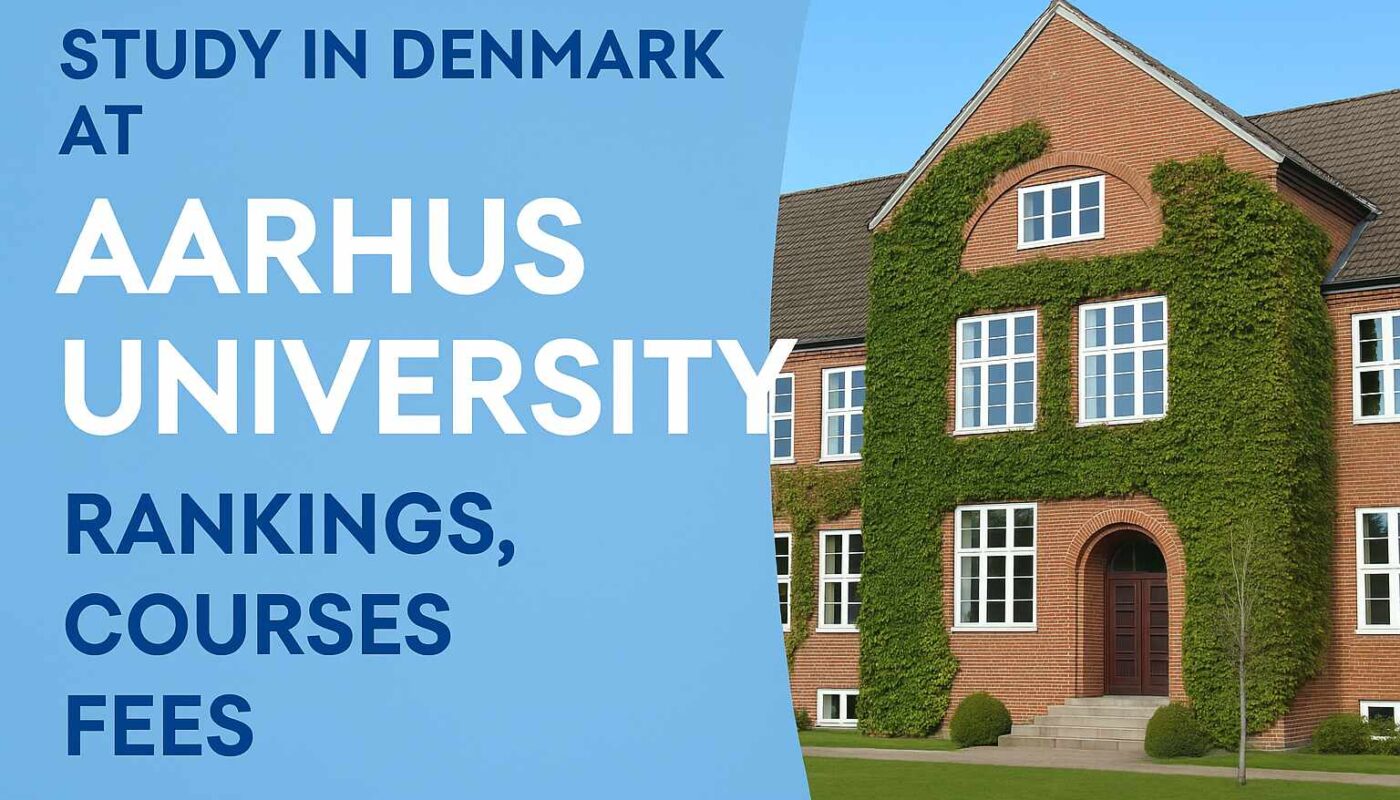Aarhus University (AU) is a public Research University in Aarhus, Denmark. Established in 1928, it is the second oldest University in the country. It is a dynamic educational institution, blending modern teaching approaches with globally informed research and diverse classrooms. The University is a member of prestigious groupings such as the Coimbra Group, the Guild, the Utrecht Network of European Universities, and the European University Association.
Interestingly, AU is also Denmark’s second-largest University with around 36,000 students from more than 120 countries enrolled in its campuses in Aarhus, Emdrup, Flakkebjerg, Herning, Roskilde, and Viborg. The University offers a variety of English-taught courses across various levels, making its excellent academic facilities accessible to a wider range of students.
Aarhus University particularly stands out for its interdisciplinary research facilities, including the iNANOcentre and the Arctic Research Center. In this article, we will learn about this excellent Danish University and all it offers to prospective international students.
Aarhus University: Rankings & Recognitions
Aarhus University performs well on international and national rankings, especially for research quality, teaching quality, and internationality. Its most impressive standings are mentioned below.
- Ranked 19th on the QS World University Ranking by Subject 2025
- Ranked at 53 in Europe as per QS University Europe Rankings 2025
- Ranked at #69 among the most international Universities in the world as per Times Higher Education Rankings 2025
- Ranked at #80 in the world as per Shanghai Rankings 2024
Having seen the University’s impressive reputation, we will move on to the admission intakes it offers for international students.
Intakes at Aarhus University
There are various intakes to study in European countries, which may even vary from University to University. For AU, one can apply during the major intake in August or the minor intake in January. The difference between the intakes lies in the number of programs available in each, with the August intake being more popular for the wider range of courses it offers.
However, since the January intake caters to many specialized courses, it is worth checking which intake one’s preferred courses are available in. The timing for the most popular courses can be particularly fast, so let us discover those together in the next section.
Popular Courses at Aarhus University
Aarhus University offers over 50 fully English-taught degree programs across Master’s and Bachelor’s levels. Additionally, it has a variety of doctoral programs and shorter courses through the AU Summer University. The table below denotes the most popular Master’s and Bachelor’s programs at the University.
Bachelor’s Courses :
- Bachelors in Economics and Business Administration
Master’s Courses :
- MSc in Bioinformatics
- MSc in Computer Engineering
- MSc in Electrical Engineering
- MSc in Molecular Nutrition and Food Technology
- MSc in Geology
- MSc in Nanoscience
- MSc in Civil and Architectural Engineering
- MSc in Computer Science
- MSc in Engineering (Technology-Based Business Development)
- MSc in Mathematic
Master’s degrees at Aarhus University last 24 months, while Bachelor’s degrees can last for 36 months. Since the courses are spread across a wide array of disciplines, the tuition fees may also vary. We will learn about the exact costs in the upcoming section.
Cost to Study at Aarhus University
Aarhus University’s excellence also lies in its accessibility. The tuition fees for both Master’s and Bachelor’s courses range from €8,000 to €16,300 per year. Meanwhile, the cost of living in Aarhus comes to around €1,000 per month, including accommodation, study supplies, utilities, food, and other day-to-day expenditure.
Students can further reduce the cost of education at Aarhus University by picking up part-time work shifts or trying to apply for scholarships to study in Denmark. Next, we will learn further about some of these scholarships.
Aarhus University: Scholarships for International Students
Aarhus University offers some generous scholarships to talented international applicants based on Merit and Need. The Danish government sponsors some of these scholarships, while others are funded by external grants. Students can also avail themselves of loan programs. The most famous example of scholarships at Aarhus University is the Danish State Educational Grant.
Alongside financial opportunities, students are also subjected to training and resources to make them ready for their future careers. Next, let us get a deeper look at the placement support services that students can access at AU.
Aarhus University Placement Support Services
Students at Aarhus University often find paid and unpaid internship placements during their course to help them develop practical skills and gain network connections in their respective industries. Students can also book career counselling sessions for more clarity on their options or find the right hub to get support for their entrepreneurial vision through the Kitchen. With regular placement drives, students at Aarhus University are often selected by top companies in their respective fields.
To end, Aarhus University stands out among the top Universities to study in European countries, particularly Denmark. With notable alumni that include Danish royalty and Nobel Prize Laureates, the University can offer an unforgettable academic experience to international students. If students seek assistance with their applications, they can reach out to trusted study abroad consultants in their area. Their experts can ease the application process for upcoming intakes.



